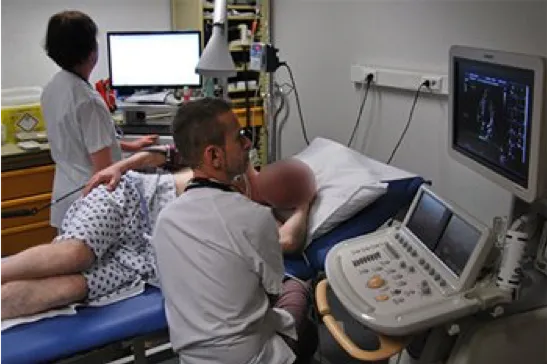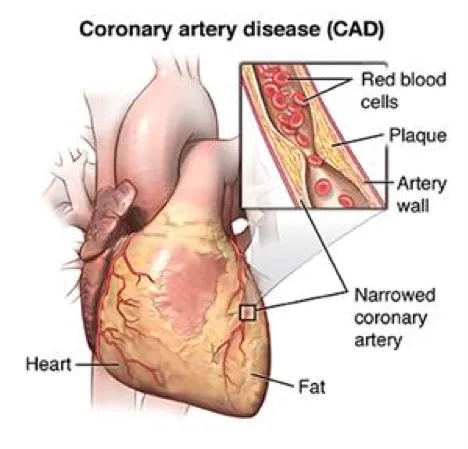- This is an ultrasound scan which consists of visualising and analysing changes in the contraction of the heart muscle when stressed by an injection of dobutamine.
- This substance accelerates the heart and can therefore replace physical effort.
- This test is mainly used to detect myocardial ischaemia (lack of oxygen to the heart muscle), which indicates damage to a coronary artery.


- The examination takes place on the 1st floor, Cardiology, D wing.
- You must register in advance at reception on the 1st floor D.
- Plan to stay in the department for 45 to 60 minutes.
- It is not necessary to fast (a light breakfast is even recommended).
- Some medicines must be stopped 48 hours before the examination, with the prior agreement of the cardiologist. These include drugs that slow down the heart's rhythm, beta-blockers (e.g. Bisoprolol, Isoten, Emconcor, Tenormin, Métoprolol, Skéloken, Kredex, Nobiten, etc.) and certain calcium antagonists (e.g. Bisoprolol, Isoten, Emconcor, Tenormin, Métoprolol, Skéloken, Kredex, Nobiten, etc.). ) and certain calcium antagonists ( Diltiazem, Progor, ... )
- The invoice will be sent to you by the hospital.
- L'inscription se fait à l'accueil central, situé au rez-de-chaussée du bâtiment A.
- L'examen se déroule soit en Médecine Nucléaire (Niveau -1, bâtiment A), soit en cardiologie, au rez-de-chaussée du bâtiment B.
- Prévoyez de rester 2h à l'hôpital. Merci d'arriver 1/2 heure avant l'heure indiquée de l'examen.
- Il n'est pas nécessaire d'être à jeun (un petit-déjeuner léger est même conseillé).
- Certains médicaments doivent être arrêtés 48h avant l'examen, après l'accord préalable de votre cardialogue. Il s'agit de médicaments ralentisseurs du rythme cardiaque, les Bêta-bloquants (Ex: Bisprolol, Isoten, Emconcor, Tenormin, Métoprolol, Séloken, Kredex, Nobiten, ...).
- Il est important de signaler vos antécédents médicaux, tels que l'asthme, le glaucome, un problème prostatique, .. ainsi que vos allergies médicamenteuses.
Cardiology department
Hôpital Delta
Secrétariat
Hôpital de Braine-l'Alleud
Secrétariat
